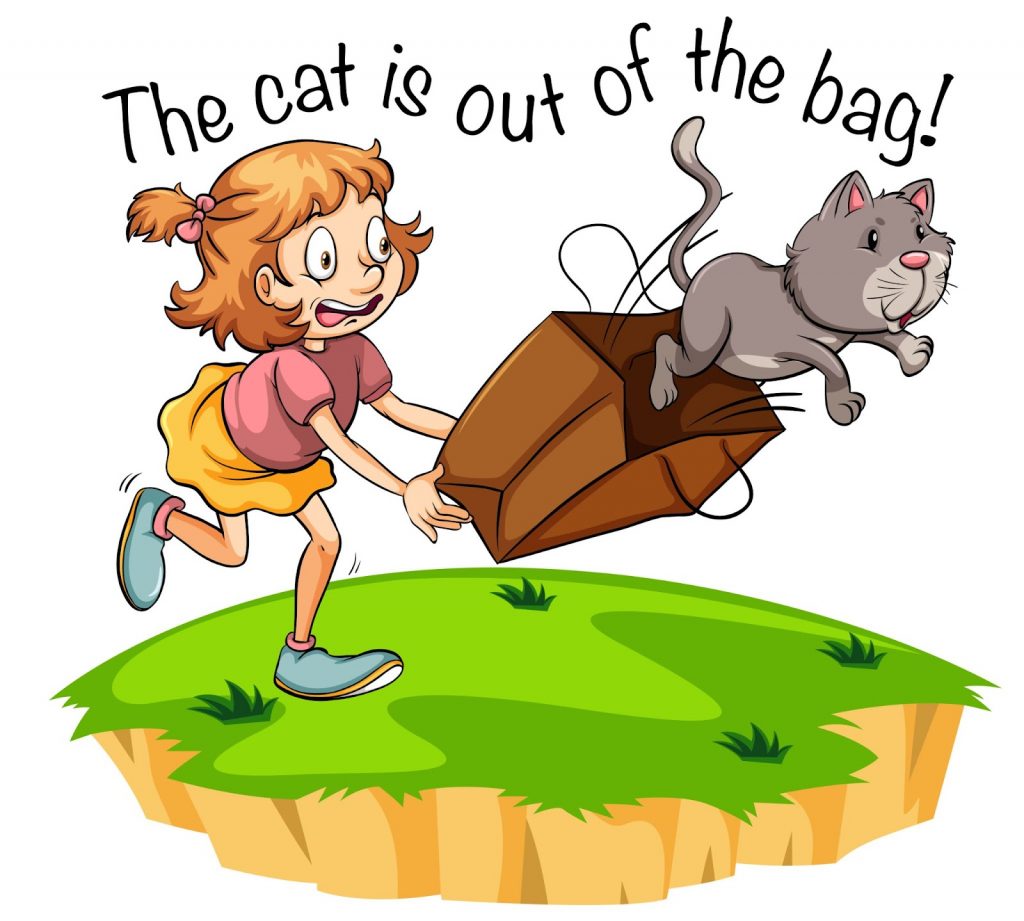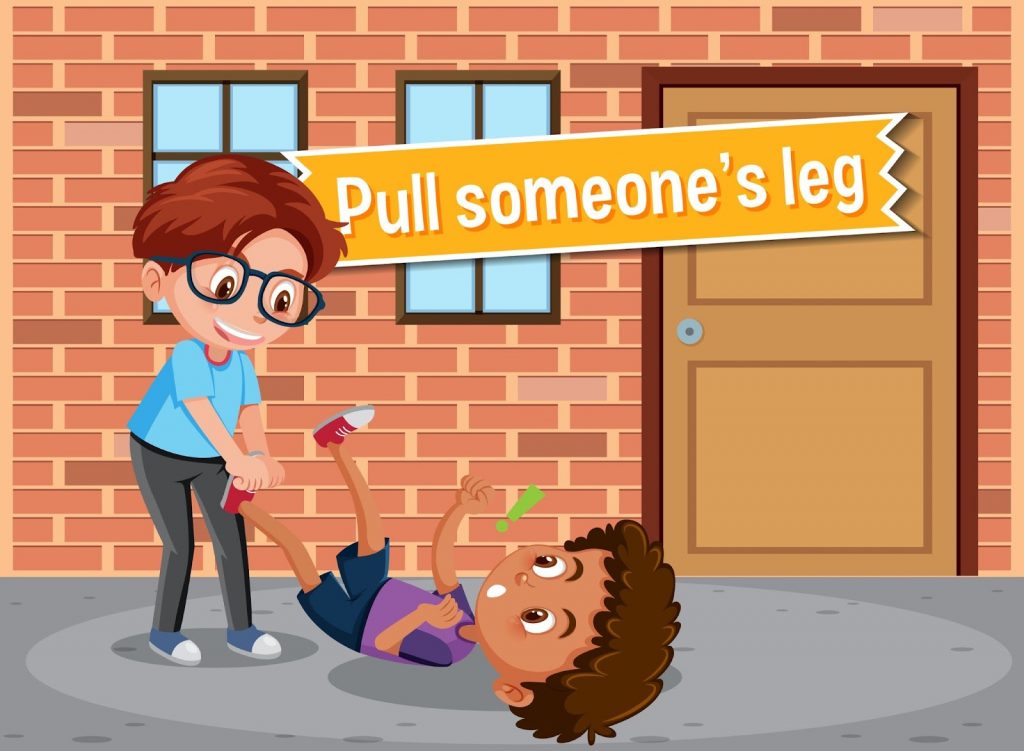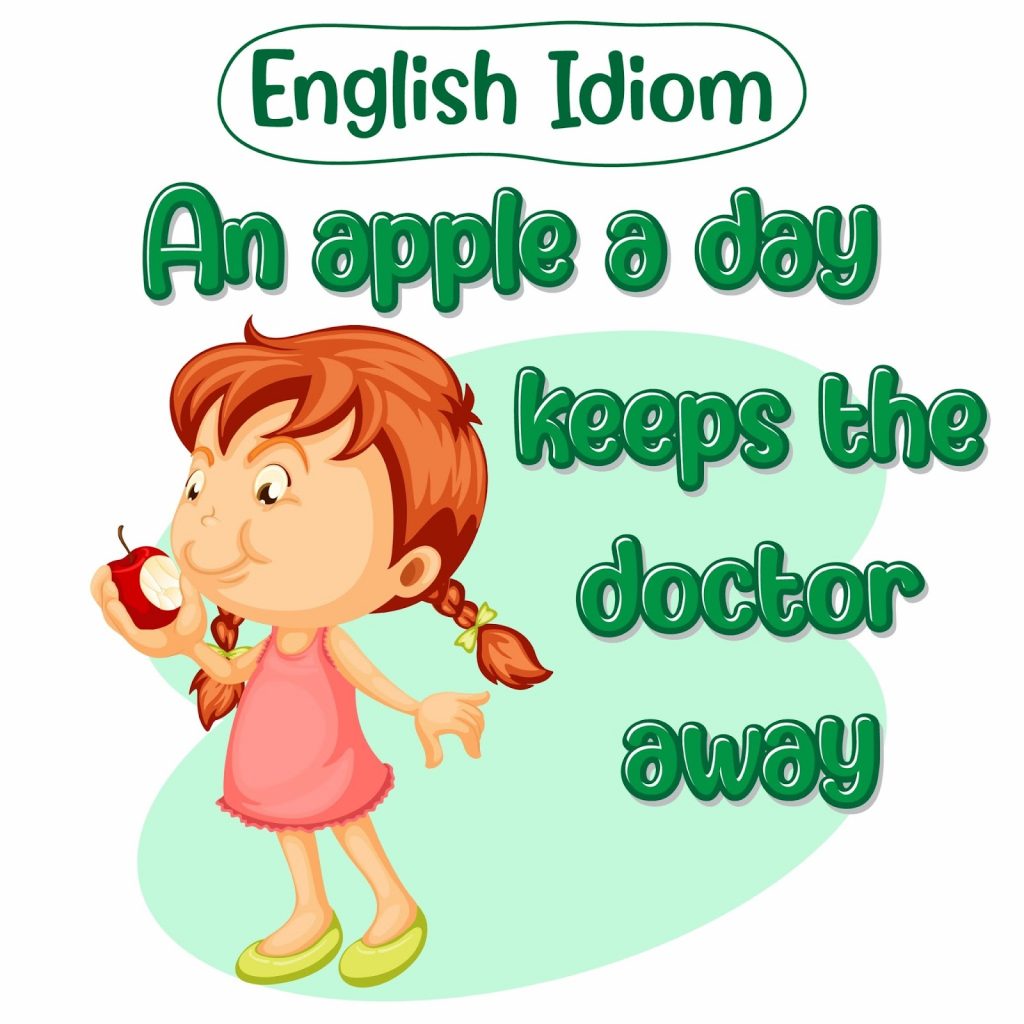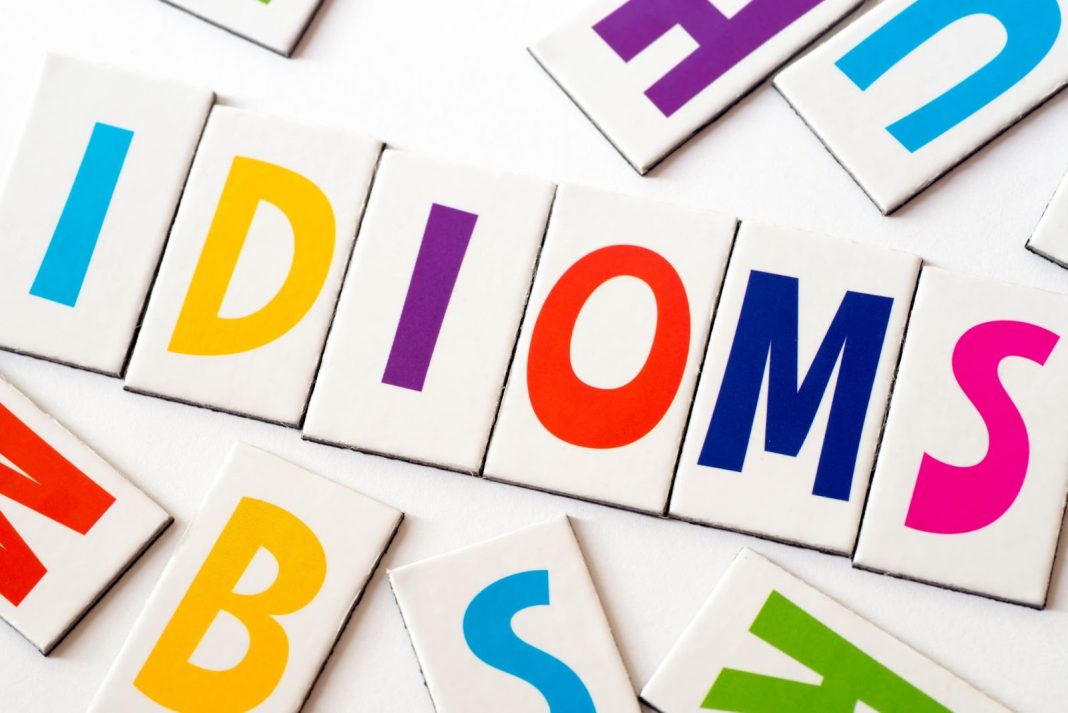Just yesterday, while it was pouring outside, my friend exclaimed, “It’s raining cats and dogs!” My little one, puzzled, turned to me and asked, “Mumma, can cats and dogs fall from the sky? That got me thinking about how crucial it is to teach these phrases, called “idioms,” to kids. Idioms for kids are like tools that can make their creative writing more exciting and colorful. Just like the raining cats and dogs saying – it doesn’t really mean animals are falling from the sky! Learning idioms can help kids express themselves in fun and imaginative ways, making their stories and writing come alive.
Math & ELA | PreK To Grade 5
Kids see fun.
You see real learning outcomes.
Watch your kids fall in love with math & reading through our scientifically designed curriculum.
Parents, try for free Teachers, use for free
In this blog, we’re going to explore a bunch of these idioms for kids that your little ones can use. We will take each one and break it down in a way that you can easily explain it to your kids.
Teach your child these idioms with ease for a language skills boost!
Imagine if words could play dress-up and put on costumes to become even more interesting. Well, that’s exactly what idioms do! Idioms are like word costumes that add a splash of creativity to our everyday conversations. In this section, get ready to explore some of the best idioms for kids that will make you smile, giggle, and understand language in a whole new way
Number Idioms for Kids

Numbers are more than just digits; they are the key to unlocking fascinating idioms. In this section, we’ll explore number-based phrases that make language both fun and meaningful for kids.
1. “Piece of cake”
When we say something is a “piece of cake,” we mean it’s super easy, like taking a bite of that yummy treat. So, when your math homework feels easy, you can tell your friends, “It was a piece of cake!”
Example: Solving this puzzle was a piece of cake!
2. “Two heads are better than one”
Think about a pair of friends working on a puzzle together. This idiom means that when you work with someone, your ideas can become even better. Like if you and your buddy team up for a project, you’ll have double the awesome ideas.
Example: Let’s work on our science project together. You know what they say, two heads are better than one!
3. “Third time’s a charm”
Ever try to do something three times and finally succeed on the third attempt? That’s when we say, “Third time’s a charm.” It’s like magic – the third try brings luck and success.
Example: Don’t worry if you don’t get it right the first time. Remember, the third time’s a charm!
4. “Ten out of ten”
When you get a perfect score on a test, you can proudly say, “I got ten out of ten!” It’s like saying you nailed it completely.
Example: I got all the answers correct on the quiz – ten out of ten!
5. “Four-leaf clover”
Imagine finding a clover with four leaves instead of the usual three. It’s rare and lucky! When something is as lucky as finding a four-leaf clover, we say it’s lucky like that magical plant.
Example: Finding a parking spot on a busy day is like discovering a four-leaf clover!
6. “On cloud nine”
Think of the happiest moment you’ve ever had. Being “on cloud nine” means you’re super-duper happy, like you’re floating on a cloud way up in the sky!
Example: After winning the game, Jane felt like she was on cloud nine.
7. “First come, first served”
Picture a line of people waiting for ice cream. The first person to arrive gets served first. This idiom means whoever arrives first gets what they want before the others.
Example: Let’s hurry to the front of the line – it’s first come, first served for the best seats!
8. “Six of one, half a dozen of the other”
Imagine having six cookies on one plate and half a dozen (that’s six too!) on another plate. This idiom says that two options are basically the same, just like having six cookies or half a dozen cookies.
Example: We can play board games or watch a movie – it’s really six of one, half a dozen of the other.
9. “Three strikes and you’re out”
Imagine playing baseball and getting three chances to hit the ball. If you miss three times, you’re out. This saying is used when someone messes up three times and faces consequences.
Example: Tim missed hitting the ball three times in a row – three strikes and you’re out, buddy!
10. “Count your chickens before they hatch”
Imagine a farmer counting eggs before they turn into baby chickens. Sometimes, we plan things that might not happen. This idiom reminds us not to get too excited about something until it actually happens.
Example: Let’s not plan the celebration until we’re sure we’ve won – we shouldn’t count our chickens before they hatch.
These idioms for kids make our language more fun, just like how different numbers can create endless games and puzzles. Isn’t it amazing how numbers can be so much more than just numbers? Let’s keep exploring idioms together and see what other exciting secrets they hold.
Animal Idioms for Kids

Animals are like nature’s storytellers, and guess what? We’ve turned some of their behaviors into awesome idioms that make our language even more exciting. Let’s explore these animal idioms together:
11. “Let the cat out of the bag”
Imagine someone trying to surprise you with a gift. If they accidentally tell you about it, they’ve “let the cat out of the bag.” It’s like revealing a secret before the right time!
Example: Sarah accidentally let the cat out of the bag when she mentioned the surprise party before the big day.
12. “Hold your horses”
Picture someone riding a horse and suddenly pulling the reins to stop. When we say “hold your horses,” it means slow down and be patient. So, if you’re asking for something repeatedly, a grown-up might tell you to hold your horses!
Example: I know you’re excited about the movie, but hold your horses – we need to finish our chores first.
13. “Bird’s-eye view”
Imagine being as high as a bird flying in the sky. A “bird’s-eye view” means you’re seeing things from high up and getting a clear picture of everything. From the top of the hill, we could see the whole town – it was like having a bird’s-eye view!
Example: From the top of the mountain, we had a bird’s-eye view of the entire valley below.
14. “Fish out of water”
Have you seen a fish on land? It’s not where fish belong, right? “Fish out of water” describes someone who’s in a situation that feels strange or uncomfortable for them.
Example: When I tried dancing at the ballet class, I felt like a fish out of water because I’d never danced before.
15. “Busy as a bee”
Have you noticed how bees are always moving around, working on flowers? When someone is “busy as a bee,” it means they’re working really hard and staying active, just like those buzzing insects.
Example: Grandma is always busy in her garden, just like a bee collecting nectar from flowers.
16. “Like a bull in a china shop”
Imagine a big, strong bull inside a delicate shop filled with fragile dishes. If someone is moving around clumsily and might break things, we say they’re “like a bull in a china shop.”
Example: When Tim tried to help in the delicate pottery store, he knocked over a vase – he was like a bull in a china shop.
17. “Horse of a different color”
Imagine you’re talking about cats, and suddenly someone starts talking about horses. They’re discussing a “horse of a different color” – a completely different topic that doesn’t match the first one.
Example: We were talking about math, and suddenly Jack started talking about his favorite book – he was discussing a horse of a different color.
18. “Sly as a fox”
Foxes are known for being clever and tricky. When someone is “sly as a fox,” it means they’re really smart and can outwit others.
Example: Lucy figured out the puzzle before anyone else. She’s as sly as a fox when it comes to solving tricky problems.
19. “Cry over spilled milk”
Imagine accidentally knocking over a glass of milk. When we say “don’t cry over spilled milk,” it means don’t get upset about something that has already happened and can’t be changed.
Example: I accidentally dropped my ice cream, but there’s no use crying over spilled milk. I’ll just get another one.
20. “Barking up the wrong tree”
Imagine a dog barking at the wrong tree while a squirrel runs away from a different tree. When you’re “barking up the wrong tree,” it means you’re looking for something or blaming the wrong person.
Example: When I asked Lily about my missing toy, I was barking up the wrong tree – she didn’t know anything about it.
Animals have such interesting behaviors that we can relate to our own lives. These idioms make our language more colorful, just like a rainbow in the sky. Isn’t it amazing how the things animals do can teach us new ways to talk? Let’s keep exploring these animal idioms and see where they lead us!
Everyday Idioms for kids

Just like our daily routines, there are idioms that fit right into our everyday lives. These are the kinds of sayings you might hear when you’re chatting with your friends, family, or even when you’re watching your favorite cartoons. Let’s explore some everyday idioms that make our conversations more interesting:
21. “Break a leg”
No, we don’t actually want someone’s leg to break! This idiom means “good luck.” Imagine being on stage and someone tells you to break a leg – they’re wishing you luck for your performance.
Example: Before the school play, Sarah’s friends told her to break a leg to wish her good luck.
22. “Under the weather”
Imagine feeling sick and wanting to stay in bed. When someone says they’re “under the weather,” it means they’re not feeling well.
Example: I can’t go out to play today – I’m feeling a bit under the weather.
23. “Hit the hay”
Imagine being so tired that you just want to jump into a soft pile of hay and sleep. “Hit the hay” means to go to bed.
Example: It’s getting late, so it’s time to hit the hay and go to sleep.
24. “On the same page”
Imagine reading a book together with your friends, all looking at the same page. When you’re “on the same page” with someone, it means you both understand and agree about something.
Example: When we all agreed on the movie we wanted to watch, we knew we were on the same page.
25. “Bite the bullet”
Imagine facing something scary, like getting a shot at the doctor’s office. “Bite the bullet” means to face a difficult situation with courage.
Example: Even though he was nervous, Tom decided to bite the bullet and ask his teacher about the challenging assignment.
26. “Cost an arm and a leg”
Imagine something is so expensive that it feels like it’s taking away important parts of your body! “Cost an arm and a leg” means something is very pricey.
Example: Those fancy shoes may look nice, but they cost an arm and a leg!
27. “Hit the nail on the head”
Imagine trying to hammer a nail into the wall and hitting it right in the center. “Hit the nail on the head” means to describe something exactly right.
Example: When Sam guessed that I was feeling hungry, he hit the nail on the head – I hadn’t eaten all day!
28. “A piece of work”
Imagine meeting someone with a very unique personality. When we say someone is “a piece of work,” we mean they’re interesting and sometimes a little tricky to understand.
Example: Emily’s little brother is quite a piece of work with his funny jokes and surprising ideas.
29. “Spill the beans”
Imagine someone accidentally knocking over a bowl of beans and revealing a secret. “Spill the beans” means to accidentally reveal information that was supposed to be a secret.
Example: Tim accidentally spilled the beans about the surprise party while talking to his sister.
30. “Get cold feet”
Imagine being nervous before doing something big, like a performance. “Getting cold feet” means feeling scared and unsure about going through with it.
Example: I was excited to perform on stage, but right before I went out, I got cold feet and felt really nervous.
Everyday idioms are like familiar friends that pop up in our chats, making us smile and nod in understanding. They’re like adding sprinkles to our ice cream – they make our conversations extra tasty! Isn’t it cool how words can create these little surprises in our everyday conversations? Let’s keep exploring these everyday idioms and see where they take us next!
Food Idioms for Kids

Just like how we enjoy different flavors of ice cream, our language is full of idioms inspired by food! These idioms are like little bites of language that make our conversations more interesting. Let’s dive into some tasty food idioms that you’ll love to savor:
31. “The icing on the cake”
Imagine adding sweet icing on top of a cake to make it even better. “The icing on the cake” means something extra good that makes a situation even more special.
Example: Getting an extra day off from school was the icing on the cake for our vacation.
32. “Egghead”
Imagine someone with an egg as their head, suggesting they’re really smart. “Egghead” is a playful term for a person who is highly intelligent.
Example: My older brother is a real egghead – he always gets top grades in school.
33. “Couch potato”
Imagine a potato sitting comfortably on the couch, not doing anything. A “couch potato” is someone who likes to sit around and watch TV instead of being active.
Example: After a long day, I sometimes turn into a couch potato and watch my favorite cartoons.
34. “Butter someone up”
Imagine spreading butter on toast to make it taste better. When you “butter someone up,” you give them compliments to make them like you or do something for you.
Example: Jenny wanted to borrow my markers, so she buttered me up with compliments before asking.
35. “Full of beans”
Imagine beans bouncing around energetically in a jar. When someone is “full of beans,” it means they’re full of energy and enthusiasm.
Example: Even after playing all day, Lucy was still full of beans and didn’t want to go to bed.
36. “Cool as a cucumber”
Imagine a cucumber that’s always cool and refreshing. When someone is “cool as a cucumber,” they’re calm and not worried, even in tricky situations.
Example: When the thunderstorm came, Dad stayed cool as a cucumber and comforted us.
37. “In a pickle”
Imagine being in a jar full of pickles – it’s a tight spot, right? When you’re “in a pickle,” it means you’re in a difficult or tricky situation.
Example: I accidentally locked my keys inside the house – I’m definitely in a pickle now!
38. “Bring home the bacon”
Imagine a person bringing home a delicious plate of bacon for their family. “Bring home the bacon” means to earn money and provide for your family.
Example: Mom works hard to bring home the bacon and take care of our family.
39. “Bigger fish to fry”
Imagine someone cooking a big fish for a meal. “Bigger fish to fry” means having more important or pressing matters to attend to.
Example: I can’t worry about cleaning my room right now; I have bigger fish to fry – I need to finish my school project.
40. “Like two peas in a pod”
Imagine two peas that look exactly the same in a pod. When people are “like two peas in a pod,” they’re very similar or close friends.
Example: Lily and Emma are best friends and are like two peas in a pod.
Food idioms add a dash of flavor to our language, just like adding your favorite toppings to a pizza! They’re like secret ingredients that make our conversations extra fun. Isn’t it fascinating how food can inspire such creative ways to talk? Let’s keep exploring these food idioms and see what other mouthwatering expressions we can find!
41. “A real lemon”
Imagine buying a car that keeps breaking down, like a sour lemon. This idiom describes something that doesn’t work well or is of poor quality.
Example: Samantha thought she got a great deal on that used laptop, but it turned out to be a real lemon – it kept crashing and had all sorts of issues.
Benefits of Idioms for Kids
Idioms are more than just colorful expressions; they are a gateway to understanding a culture and achieving fluency in a language. In the context of teaching English as a Second Language (ESL), idioms hold a special place.
According to a study published in the Asian Journal of Humanities and Social Sciences, knowledge of idiomatic English can promote language fluency, and the ability to use idioms appropriately is a key to native-like fluency. Teachers in the study agreed that idiomatic expressions are important in everyday English use, adding beauty and vocabulary enhancement to the language.
Why do we even use these tricky phrases? Well, there are some benefits to learning and using these idioms:
1. Express Yourself in a Fun Way
Imagine saying, “She’s as busy as a bee,” to talk about someone who’s always working hard. It paints a colorful picture in your listener’s mind, doesn’t it? Idioms help you express your thoughts and feelings in a more interesting way, like creating a mini movie with words.
2. Understand Grown-Ups Better
Grown-ups love using idioms, and sometimes it might feel like they’re talking in secret code! Learning idioms helps you crack that code and understand what they’re really saying. So, the next time someone tells you, “Hold your horses,” you’ll know they mean to be patient.
3. Make Learning Fun
Learning new things can be exciting, and idioms make it even more fun. Imagine discovering that “A penny for your thoughts” means someone wants to know what you’re thinking. It’s like being a language detective and solving a word mystery.
4. Boost Your Vocabulary
Idioms introduce you to new words and phrases that you might not use every day. This helps you build a super strong vocabulary and become a better communicator.
So, just like how playing with building blocks helps you create amazing structures, using idioms lets you build fantastic sentences that are full of imagination and surprise. Isn’t that a fantastic way to make your language skills shine?
Conclusion
The importance of idioms in language learning cannot be overstated. As highlighted in the study by Sridhar Maisa and Dr. T. Karunakaran, idiomatic usage of language has become so common in English that it allows learners to speak or write fluently using idioms. The learning of interesting idioms can be considered an integral part of vocabulary learning, and idioms can be added to the vocabulary being learned by including them in dialogues and stories to supplement regular materials. By learning simple idioms, we not only enrich our language but also bridge the gap between mere communication and artful expression. Whether you are a language learner or a seasoned speaker, idioms offer a window into the soul of the language, adding color, depth, and beauty to our words.
Frequently Asked Questions (FAQs)
What can I do to teach my kid idioms?
To teach kid friendly examples of idioms, introduce them through stories and everyday conversations, encourage them to use idioms in their own sentences for better understanding and usage, introduce an idiom of the day everyday, or consider creating a list of idioms for kids.
Can idioms confuse kids? How can I simplify the learning process?
While idioms can seem confusing, start with common ones and relate them to real-life situations. Break down the meanings and have fun coming up with similar expressions together.
Can kids create their own idioms?
Absolutely! Encourage your child’s creativity by challenging them to make up their own list of idioms based on everyday experiences.
What are some to short idioms that I can teach my child?
Here are a few short idioms that are perfect for teaching kids: Jumping the gun, Swinging for the fences and Chew the fat.
























